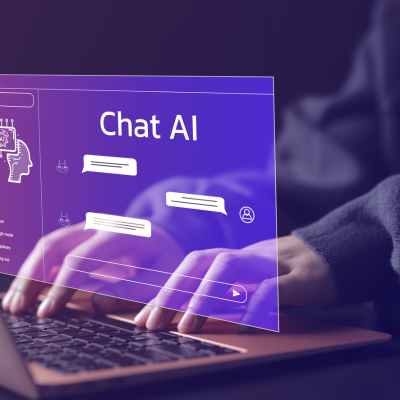

In today’s fast-paced world, having an assistant isn’t just a luxury; it’s a necessity. Whether you’re running a remote business, managing a packed schedule, or scaling your startup, the right assistant can make all the difference. But with so many options out there, the big question is: should you choose a human assistant or an AI-powered one?
At DigiWorks, we get it—choosing the right assistant can feel overwhelming. That’s why we’re here to break it all down for you. In this ultimate guide, we’ll compare the strengths and weaknesses of human and AI assistants, helping you find the perfect fit for your needs. So, grab a coffee and let’s dive in!
The Human Touch in the Digital Age
Humans have been the go-to choice for assistants for centuries, and for good reason. They bring a level of empathy, creativity, and adaptability that no machine can fully replicate (yet). A human assistant can read the tone of an email, anticipate your needs, and handle unexpected situations with grace.
For example, let’s say you’re managing a big client pitch. A human assistant can coordinate schedules, craft personalized messages, and even step in to manage last-minute changes. They’re like your business partner, problem solver, and cheerleader rolled into one.
Of course, the downside is cost. Hiring a human assistant—especially someone experienced—can be pricey. Plus, they have limitations like working hours, which might not always align with your needs if you’re managing teams across different time zones.
Read more from Forbes: AI Vs. The Human Touch: Striking The Right Balance In Customer Support
From Siri to ChatGPT: How AI Assistants Are Changing the Game
On the flip side, AI assistants are revolutionizing the way we work. They’re fast, efficient, and cost-effective, making them an attractive option for businesses of all sizes. AI assistants like ChatGPT, Siri, and virtual scheduling tools can handle repetitive tasks like booking appointments, organizing your calendar, and sending reminders—all without taking a coffee break.
One major perk? Scalability. AI assistants don’t get tired, so whether you need to process a hundred customer queries or schedule a dozen meetings, they’ve got you covered.
However, AI isn’t perfect. While it excels at repetitive tasks, it struggles with nuance. AI can’t read between the lines or handle sensitive client interactions with the same care a human can. So, if your business relies heavily on personalization, this is something to keep in mind.
Head-to-Head: Human vs. AI Assistant Strengths and Weaknesses
When it comes to choosing between a human and an AI assistant, it helps to compare them side by side.
| Criteria | Human Assistant | AI Assistant |
| Empathy & Creativity | Exceptional | Extremely Limited |
| Cost | Higher | Lower |
| Availability | Limited to working hours | 24/7 |
| Scalability | Challenging | Effortless |
| Task Complexity | Great for nuanced or unpredictable tasks | Best for repetitive or structured tasks |
Think of it like this: hiring a human assistant is like getting a skilled artisan, while using an AI assistant is like having a super-efficient machine. Both have their place depending on what you need.
Budget Smarts: Finding an Assistant That Works for Your Wallet
Let’s talk money. Hiring a human assistant often comes with a significant price tag—salaries, benefits, and sometimes even equipment. For small businesses or startups, this might not be feasible.
AI assistants, on the other hand, typically come with subscription fees that are much lower. For instance, tools like Calendly or AI chatbots cost a fraction of a human assistant’s salary. They’re a great way to stretch your budget while still getting things done.
That said, if your business requires a high level of personalization or complex problem-solving, investing in a human assistant might deliver better ROI in the long run.
Adapt or Fail: How Human and AI Assistants Handle Change
When it comes to flexibility, humans have the edge. A human assistant can quickly adapt to changes, learn new tools, and handle shifting priorities with ease. For example, if your business suddenly pivots to a new strategy, a human assistant can adjust their workflow on the fly.
AI assistants, while programmable, are limited by their coding. They’re excellent at automating repetitive tasks but less capable when it comes to handling unforeseen challenges. However, advancements in AI are narrowing this gap. Some tools, like machine learning-powered assistants, can adapt to new patterns over time.
Scaling Your Team: Can Human or AI Assistants Keep Up?
Growth is every business owner’s dream, but it can also be a logistical nightmare. When scaling, you need assistants who can grow with you.
AI excels in this department. Need to send 1,000 personalized emails? Done. Need to manage a sudden influx of customer service requests? No problem. AI’s ability to scale is unmatched.
Human assistants, on the other hand, shine in building relationships. They’re the ones who’ll remember your top client’s favorite coffee order or send a thoughtful follow-up email. As your business grows, these personal touches can set you apart.
Guarding Your Business: Trusting Humans vs. Algorithms

Trust is critical when choosing an assistant. Humans bring discretion and judgment to the table, making them ideal for tasks involving sensitive client interactions. However, human error—like sending the wrong email—can pose risks.
AI assistants handle data with precision, but there’s a tradeoff: security. Data breaches are a real concern when using cloud-based AI tools. To mitigate this, choose reputable platforms with strong encryption and data privacy policies.
When to Choose a Human, AI, or a Blend of Both
Here’s the truth: there’s no one-size-fits-all answer. The best choice depends on your business needs.
- Choose a Human Assistant If: You need creativity, nuanced problem-solving, or someone to manage sensitive relationships.
- Choose an AI Assistant If: You’re looking to automate repetitive tasks, scale your operations, or stay within a tight budget.
- Choose a Blend of Both If: You want the efficiency of AI combined with the personal touch of a human. For example, an AI assistant can handle initial customer inquiries, while a human steps in for more complex interactions.
What’s Next? The Evolving Role of Assistants in Business
The future of assistants lies in collaboration. AI is becoming more advanced, while human assistants are leveraging technology to work smarter. Hybrid models, where humans and AI work together seamlessly, are likely to dominate.
Imagine an AI assistant handling your daily admin tasks while your human assistant focuses on high-level strategy and client relations. It’s a win-win.
The Final Decision: Making the Right Call for Your Business

Choosing the right assistant—whether human, AI, or a mix of both—isn’t just about efficiency; it’s about finding what works best for your business. Think about your needs, goals, and budget, and weigh the pros and cons of each option.
At DigiWorks, we specialize in helping businesses like yours build the perfect team. Whether you’re looking for skilled virtual assistants, cutting-edge AI tools, or a combination of both, we’ve got you covered. Ready to find your ideal assistant? Schedule a consultation with us today!
Keep Reading: Skills To Look For When Hiring a Virtual Assistant